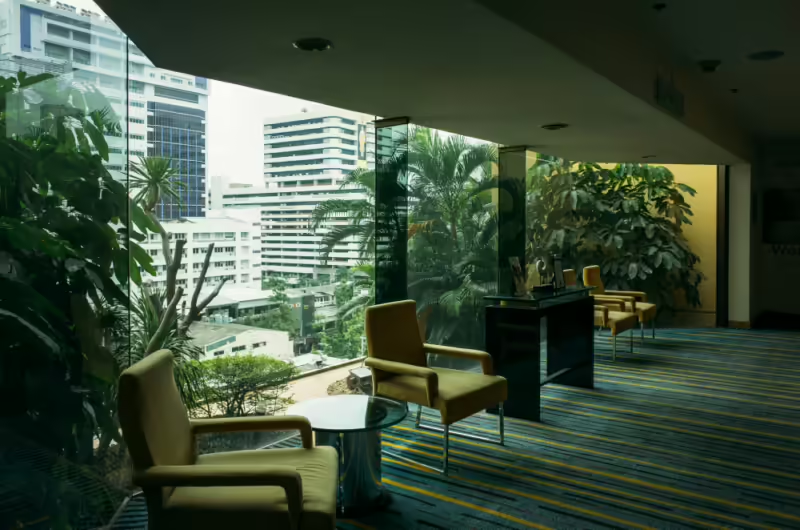Sustainability has become the center of many global debates because people, companies, and sectors are trying to reduce adverse effects on the environment.
Amidst all this, an area where sustainable elements are being incorporated more and more is the luxury hotel segment. Traditionally, luxury hotels were all about providing opulence and luxury to the guests.
Nowadays, hotels are looking towards the future by integrating sustainable practices into their operations without compromising the luxury experience for their guests.
As a result, in this article, we will focus on discussing aspects such as changes in the management of luxury hotels, sustainable practices, and the advantages of these changes.
Critical Areas of Focus for Sustainability in Luxury Hotels
Many luxury hotels are beginning to incorporate sustainable measures in various aspects of their business activities. Such practices do not only reduce their effects on the surroundings but also create positive guest experiences.
1. Eco-Friendly Interior Design Using Locally Sourced Materials
Modern luxury hotels such as 1 Hotel Mayfair are incorporating sustainable interior designs for their facilities to reduce their negative impacts on the environment.
These hotels are sourcing locally and incorporating reclaimed and responsibly harvested materials in their design, helping to lessen the environmental footprint of these luxurious spaces.
- Reclaimed Wood and Fabrics: Some common examples include the use of recycled timber in the construction of furniture, flooring, and other finishing, which helps conserve environmental resources. Likewise, fabrics derived from organic or recycled fibers are gaining popularity in furniture, mattresses, and curtains to offer environmentally friendly but stylish interiors.
- Custom Finishes: Custom finishes are obtained using low-VOC paints, varnishes, and other green coatings that contain less hazardous chemicals for additional sustainability. Such materials help to control the quality of the indoor environment, providing more comfort to guests and workers.
2. Energy Efficiency and Renewable Energy

Energy consumption is one of the most significant sources of the carbon footprint for a hotel, which makes energy management one of the considerable concerns of luxury hotels.
There are several ways hotels are addressing the following aspects.
- Green Building Design: The design of many new luxury hotels incorporates eco-friendly structures as part of their concept. These structures use energy-effective materials, allow natural ventilation and lighting, and minimize the use of artificial lighting for heating and cooling.
- Renewable Energy: Over the past years, many luxury hotels have indeed focused on adopting renewable energy. Lighting systems such as solar panels and geothermal and wind power facilities are being implemented in high-end structures for operations.
- Innovative Technology: Some of the other facilities that hotels include in their systems include innovative technology used in the control of lights, heating and cooling. Such systems allow energy to be consumed only when necessary, for example, by controlling the temperature when a guest is out of the room. This approach is not only practical in saving energy, but it also improves satisfaction among the guests.
3. Water Conservation
Water is a precious resource, and luxury hotels are implementing innovative measures to conserve it.
- Greywater Recycling: A number of luxury hotels have installed greywater systems today where grey water, which is water used in washing, cleaning, and bathing, is utilized in irrigation and flushing of toilets. This minimizes the use of water, particularly freshwater, especially in areas where water is a scarce resource.
- Low-Flow Fixtures: Low-flow showerheads, faucets, and toilets are some modern practices used in sustainable luxury hotels. Such fixtures reduce water usage while still providing satisfactory services to the guests.
- Rainwater Harvesting: Rainwater harvesting systems have been adopted in hotels in regions that experience a lot of rain. Water harvested by the rainwater harvesting system can be used for irrigation and other purposes that are not fit for human consumption.
The Growing Importance of Sustainability in Hospitality
The need for sustainable practices in the hospitality sector has grown exponentially, driven by several factors.
- Increased Awareness Among Consumers: Today’s consumers are more aware of their impact on the environment. The modern luxury traveler looks for brands that share their commitment to sustainability in addition to providing outstanding service.
- Regulatory Pressures: National and global communities are gradually strengthening requirements for the discharge of carbon, waste disposal, and consumption of resources. Moreover, the Paris Agreement and other global sustainability frameworks are establishing impact guidelines that industries must adhere to, including the hospitality industry.
The Benefits of Sustainability for Luxury Hotels
Adopting sustainability has several advantages for luxury hotels that go beyond its beneficial effects on the environment.
1. Enhanced Guest Loyalty
As more and more tourists look for experiences that reflect their beliefs, sustainability is becoming increasingly important to them.
It is expected that eco-aware visitors who appreciate responsible luxury will be more devoted to luxury hotels that successfully incorporate sustainable measures.
2. Cost Savings
Long-term savings are substantial when adopting sustainable technology and practices, even though the initial outlay may be substantial.
Programs to decrease waste can lessen disposal costs, and energy-efficient lighting, water-saving fixtures, and renewable energy sources save utility costs. These savings have the potential to strengthen the financial sustainability of the business model over time.
Bottomline
For the luxury hotel sector, sustainability is a need rather than an option.
It is evident that sustainability will be a significant priority for the luxury hotel sector globally as the trend toward sustainable tourism continues to rise.
By adopting sustainability, these products preserve their lifetime, meet customer expectations, and help to create a better planet for future generations.




